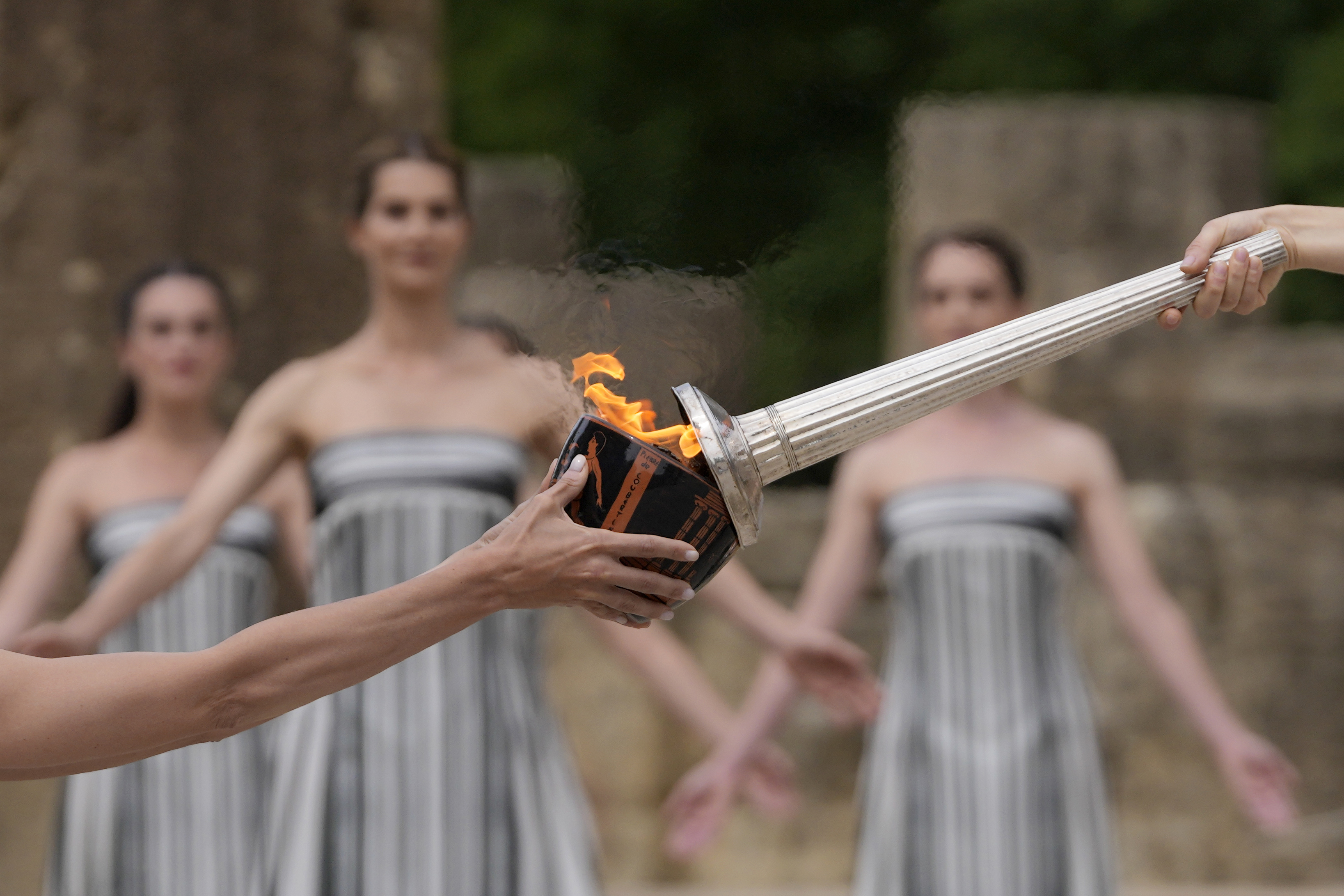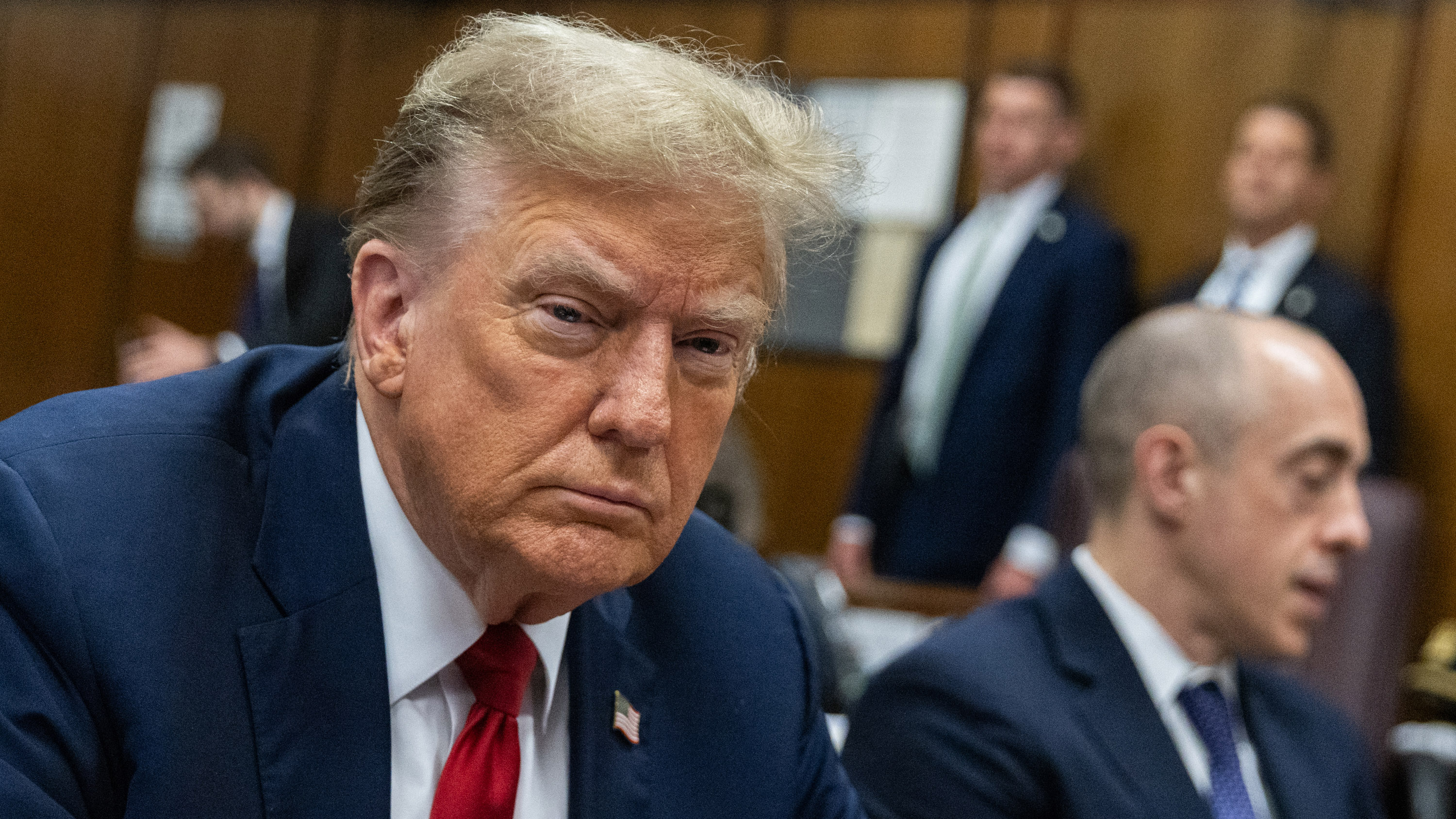Iran President Mahmoud Ahmadinejad visits the United Nations General Assembly every year in what has become a predictable routine: a round of volatile remarks about the United States and Israel, attempts by U.N. leaders to keep the peace, and crowds of protesters following him.
This time is no different.
But Ahmadinejad arrived in New York this week under a particularly fraught set of circumstances, not only for his country, but for the rest of the Middle East and for President Barack Obama.
Ahmadinejad’s term expires next year, so this is likely his last visit as a head of state. Iran is reeling from economic sanctions linked to its continued development of a nuclear program. Israel, America’s strongest ally in the region, is threatening to launch a military strike. And Obama, caught in the middle during a re-election campaign, has suddenly been forced to defend his handling of Iran, as well as the worsening civil war in Syria (in which Iran is suspected to have a hand) and the spread of anti-American protests across the Arab world.
“We are much closer to potential action and tipping points than any other time when Ahmadinejad has come to New York with his act,” said Edward Turzanski, a political and national security analyst at La Salle University. “This time, people may be a bit more fixed on what he actually says.”
While few doubt Ahmadinejad's ability to draw attention, there are growing questions about his relevancy.
"He's not responsible for the nuclear program or foreign policy despite all his controversial statements," said Mehdi Khalaji, a trained theologian and former journalist in Iran who is now a senior fellow with the Washington Institute. "It's Khamenei."
U.S. & World
That's Ayatollah Khamenei, Iran's supreme leader, who wields "absolute power" and sends Ahmadinejad "around the world to make inflammatory statements about Israel," Khalaji said.
Which, in Khalaji's mind, makes Ahmadinejad's New York visit largely a charade.
"No one in Tehran takes this seriously," Khalaji said. "They are mocking him. Iranian journalists, the people in Tehran, despite the censorship, they are mocking him. They question the use of his travel and why he imposes such a financial cost on the country for this trip. So, even inside the country nobody cares about this. Because everyone knows he likes to be the center of attention, he likes to be in the spotlight, but in terms of policy he really doesn't matter."
But Ahmadinejad is still Iran's chief international public representative, and has access to the General Assembly podium, where, in past remarks, he has denied the Holocaust and doubted whether the 9/11 hijackers were to blame for the 2001 terror attacks. He is scheduled to return to the assembly on Wednesday.
Obama will have already delivered his own speech and left town by then. Despite the growing attention on foreign affairs in the presidential race, Obama chose not to meet with world leaders at the U.N. so he could return to the campaign trail (a decision underlined by his appearance on “The View.”)
Politically, the move seems to make sense: although the circumstances of Ahmadinejad’s visit magnified the president's Middle East problems, such concerns are secondary in a race focused largely on the economy, said Lee Miringoff, director of the Marist Institute for Public Opinion. In essence, Obama is signaling that he’s willing to put off action on foreign policy until after he gets re-elected.
Addressing the General Assembly on Tuesday - in which he pledged to prevent Iran from development nuclear weapons - allowed Obama to show himself as presidential “without getting caught up in the (foreign policy) details, where things may not work out as well,” Miringoff said.
Obama’s opponent, Mitt Romney, has accused the president of mishandling the Arab Spring uprisings of the past year and of appeasing Iran and other hostile regimes. He also criticized Obama’s failure to schedule a meeting with Israeli Prime Minister Benjamin Netanyahu at the U.N.
"This is a time for a president who will shape events in the Middle East, not just be merciful or be at the mercy of the events," Romney said.
Obama says he won’t be intimidated by Romney, Netanyahu or Ahmadinejad.
“When it comes to out national security decisions, any pressure that I feel is simply to do what’s right for the American people. And I am going to block out any noise that’s out there,” Obama told CBS’ “60 Minutes.”
Meanwhile, Ahmadinejad has remained true to form since arriving in New York. Disregarding warnings to tone down his rhetoric, he told reporters he didn’t take Israel’s war threat seriously because it had no roots in the Middle East and would be “eliminated.” He accused the United States of allowing itself to be pushed around by “a few Zionists,” according to NBC News. And he criticized the U.S. for failing to take a stronger line against the anti-Islam video, the Associated Press reported.
All that was a warmup to his General Assembly speech on Wednesday.
“You can always count on him to say something uniquely aggravating and bizarre, and he won’t disappoint,” Turzanski predicted.
And the world will, again, be listening.



